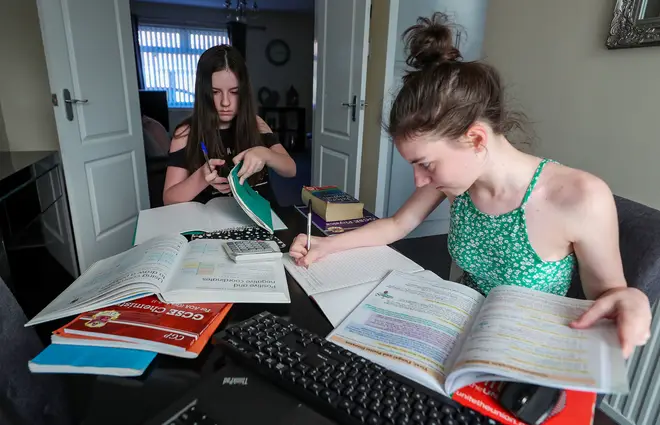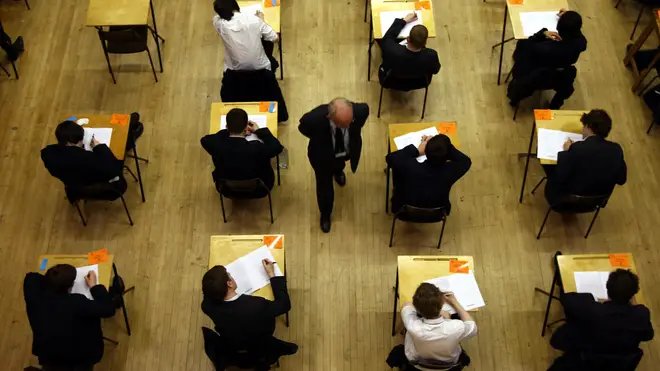
Matthew Wright 7am - 10am
25 February 2021, 07:45

A new way to grade GCSE and A-level students during Covid-19 has been devised after exams were cancelled amid the Covid pandemic. But how will results be calculated?
Education Secretary Gavin Williamson confirmed on Wednesday that schools and colleges in England would be moving away from a controversial algorithm that threw results day 2020 into chaos.
A new system has been devised which places more trust in teachers to decide their students' futures while exams are on hold due to the pandemic.
But when schools return on March 8, how will pupils be assessed? How can they challenge their grades?
Read more: Gavin Williamson rules out making school days longer

Gavin Williamson says he'll do everything he can for children
No algorithm will be used by regulator Ofqual this year to standardise teachers' grades if they appear too generous.
The idea was scrapped after thousands of students had their results downgraded due to factors such as class size and the previous performance of their school.
After a wave of furious protests by students, teachers and parents, Ofqual made a U-turn and allowed them to use teachers' predictions.
Instead, teachers are exclusively allowed to decide, judging their classroom based on their performance throughout the year.
Read more: Education Secretary Gavin Williamson to lay out exam grade plan after 2020 chaos

Teachers have been asked to draw on a range of evidence when determining grades, including mock exams, coursework or other work completed as part of a course, such as essays or in-class tests.
Exam boards will provide teachers with optional assessment questions for students to answer to also help schools decide which grades to award.
But it is understood that teachers will have the flexibility to choose how long students have to complete the task and where it will be carried out.
Teaching unions have largely welcomed the decision which has been described as a path "which avoids the awful chaos of last year".
Joint general secretary of the National Education Union, Mary Bousted, said the announcement was "better" than the original proposals and was "likely the least worst option available".
But she added: "However, there are still question marks over how it is expected that the extra work necessary to facilitate grading will be dealt with."
Read more: Gavin Williamson 'absolutely sure' unvaccinated kids won't be banned from enjoying freedom

If students feel their school or college did not go through the right process when deciding their grades, or there has been an administrative error, they can appeal with no additional cost.
In fact, students will receive their grades earlier than normal in August to allow time for a significant number of disputes.
They will also be able to challenge grades if they feel that specific circumstances, such as bereavement at the time of an assessment, were not taken into account.
An application for an appeal will go through the school or college first where they will be asked to check for errors or process issues.
If a student is still unhappy with the grade, then the appeal can be raised with exams boards who will then assess whether the teachers' judgment is fair.
Students will also be offered the chance to sit exams in the autumn.

Gavin Williamson reveals measures to "recover lost learning"
The results for some vocational qualifications will be released in the week of August 9 and are decided using the same system.
Most vocational courses are BTEC and Cambridge National qualifications, which are often taught alongside GCSEs and A-levels and are often used for university or college places, will receive grades assessed by teachers.
In Wales, GCSE, AS-level and A-level students will receive grades determined by their teachers on August 9.
In Scotland, Higher and Advanced Higher grades will be decided by "teacher judgment supported by assessment" and no algorithm will be used to adjust results.
Meanwhile, in Northern Ireland schools will determine pupils' GCSE and A-level grades.
Results days will remain as previously announced - A-levels on August 24 and GCSEs on August 27.